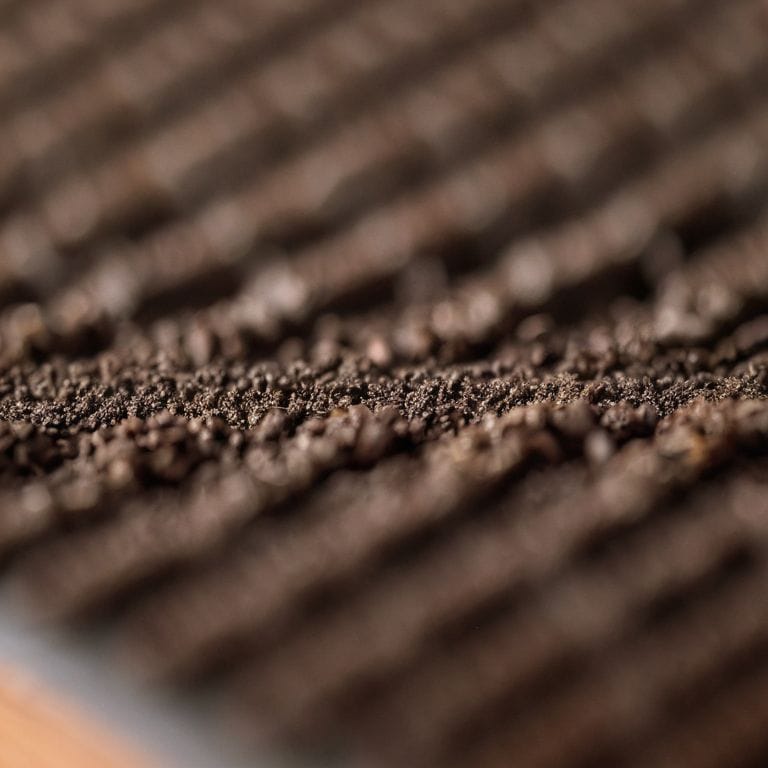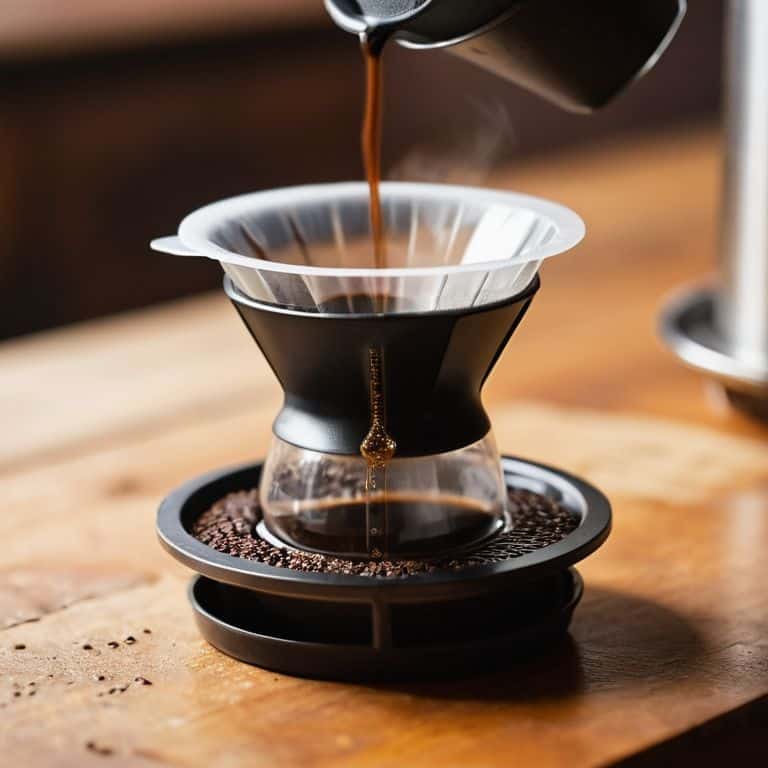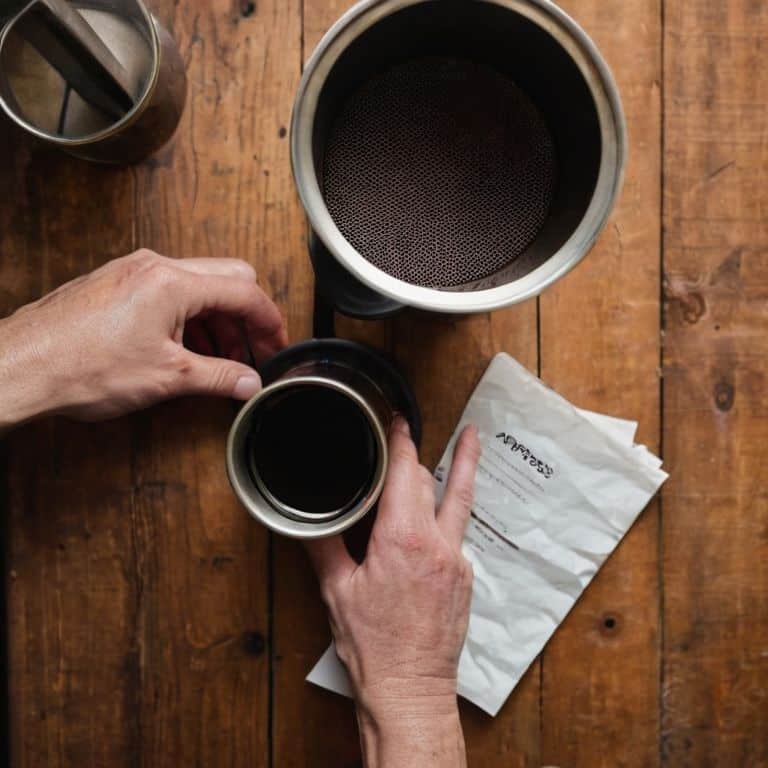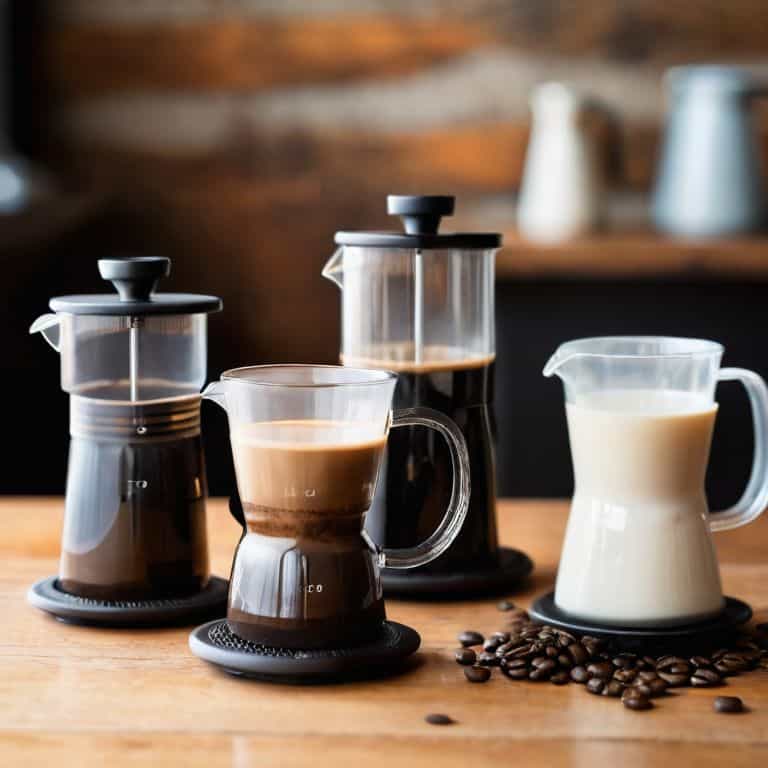As a barista champion, I’ve lost count of how many times I’ve been asked about the paper vs metal filter for Aeropress dilemma. It’s a question that sparks debate among coffee enthusiasts, and one that I’ve grappled with myself in my pursuit of the perfect cup. I’ve spent countless hours experimenting with both options, and I’ve come to realize that the choice between paper and metal filters is not just about personal preference, but about understanding the nuances of extraction. The right filter can elevate your brew, while the wrong one can leave it tasting dull and unbalanced.
In this article, I’ll cut through the hype and share my no-nonsense advice on how to choose the best filter for your Aeropress. I’ll draw on my experience as a certified Q Grader and national barista champion to provide you with a clear understanding of the pros and cons of each option. My goal is to empower you with the knowledge you need to make an informed decision and take your coffee game to the next level. I’ll share my own trial and error stories, and provide you with actionable tips on how to get the most out of your Aeropress, whether you’re a seasoned coffee pro or just starting out.
Table of Contents
Paper Filter

A paper filter for Aeropress is a disposable, paper-based filter that separates the coffee grounds from the liquid, allowing for a clean and balanced extraction of flavors. Its core mechanism involves the paper’s porous nature, which allows for a precise flow of water through the coffee, resulting in a main selling point of a smoother, less acidic brew. The use of a paper filter in Aeropress brewing is a popular choice among coffee enthusiasts, as it provides a cleaner flavor profile.
When I’m brewing with a paper filter, I’m always struck by the nuances of flavor that emerge. The paper filter’s ability to absorb some of the coffee’s natural oils and sediment results in a brew that is less bitter and more refined. As someone who’s obsessed with the pursuit of the perfect extraction, I appreciate how paper filters can help to bring out the subtle notes in a coffee’s flavor profile. Whether you’re a fan of bright, acidic coffees or smoother, more balanced ones, a paper filter can help you achieve a delicious and satisfying cup.
Metal Filter

A metal filter for Aeropress is a reusable, metal-based filter that allows the coffee’s natural oils and sediment to pass through, resulting in a more full-bodied and rich extraction of flavors. Its core mechanism involves the metal’s perforated design, which enables a higher flow rate of water through the coffee, resulting in a main selling point of a more intense flavor experience. The use of a metal filter in Aeropress brewing is a great option for those who want to experience the full potential of their coffee.
As a barista champion, I can attest that metal filters offer a unique brewing experience that’s all about embracing the complexity of the coffee. By allowing the coffee’s natural oils and sediment to pass through, metal filters result in a brew that’s more textured and layered. Whether you’re a fan of fruity, floral coffees or rich, chocolatey ones, a metal filter can help you unlock the hidden flavors in your coffee and discover new favorites.
Head-to-Head Comparison: Paper vs Metal Filter for Aeropress
| Feature | Paper Filter | Metal Filter |
|---|---|---|
| Price | $5-$10 | $10-$20 |
| Key Feature | Disposable, Paper Taste | Reusable, Metal Flavor |
| Best For | Travel, Convenience | Daily Use, Environmentally Friendly |
| Taste | Clean, Balanced | Rich, Full-bodied |
| Maintenance | Low, Disposable | High, Requires Cleaning |
| Durability | Single-Use | Long-Lasting, Durable |
| Environmental Impact | High, Paper Waste | Low, Reusable |
Aeropress Filter Wars

When it comes to the Aeropress Filter Wars, the type of filter used can significantly impact the flavor and quality of the coffee. This is because the filter affects the flow rate of the water through the coffee grounds, which in turn influences the extraction of the desired flavors and oils.
In a head-to-head analysis, paper filters tend to produce a cleaner cup of coffee, with a more pronounced acidity and a lighter body. On the other hand, metal filters allow more oils and sediment to pass through, resulting in a richer and more full-bodied cup. This difference in flavor profile is due to the distinct ways in which the filters interact with the coffee grounds and the water.
In conclusion, when it comes to the Aeropress Filter Wars, I declare the metal filter the winner in this category, as it allows for a more nuanced and complex flavor profile to shine through. The ability of the metal filter to preserve the natural oils and sediment of the coffee gives it a distinct advantage over the paper filter.
Key Takeaways: Paper vs Metal Filters for Aeropress
I’ve found that paper filters tend to produce a cleaner, brighter cup with a more pronounced acidity, while metal filters yield a richer, more full-bodied flavor with a heavier body
Experimenting with both paper and metal filters has taught me that the ideal choice ultimately depends on the type of coffee beans and roast level you’re working with, as well as your personal taste preferences
By understanding the unique characteristics of each filter type and adjusting your brewing technique accordingly, you can unlock the full potential of your Aeropress and consistently achieve cafe-quality results at home
The Filter Factor
The choice between paper and metal filters in an Aeropress is not just a matter of personal preference, but a deliberate decision that can either elevate or undermine the nuances of your coffee, making it a crucial step in the pursuit of the perfect cup.
Julian Vale
The Final Verdict: Which Should You Choose?
As I conclude this comparison, it’s clear that both paper and metal filters have their own unique strengths and weaknesses when it comes to brewing with an Aeropress. The paper filter excels at producing a clean and balanced cup, with a more pronounced body and a smoother flavor profile. On the other hand, the metal filter allows for a more nuanced and complex extraction, with a brighter acidity and a more pronounced fruitiness. Ultimately, the choice between these two filters will depend on your personal taste preferences and brewing style.
So, which one should you choose? If you’re a beginner or prefer a more straightforward brewing experience, I’d recommend the paper filter. However, if you’re an experienced brewer looking to elevate your game and extract the full potential of your coffee beans, the metal filter is the way to go. For those who value convenience and a hassle-free cleaning process, the paper filter is also a better option. But for coffee enthusiasts who are willing to experiment and fine-tune their brewing technique, the metal filter offers a world of possibilities and a more immersive coffee experience.
Frequently Asked Questions
How do paper and metal filters affect the flavor profile of my Aeropress brew?
The flavor profile! Paper filters tend to absorb more oils and solids, resulting in a cleaner, brighter cup. Metal filters, on the other hand, allow more of the coffee’s natural flavors and textures to shine through, yielding a richer, more full-bodied brew. I personally love the nuanced flavors that metal filters bring out, but it’s all about finding your perfect balance.
Can I use both paper and metal filters interchangeably, or are there specific brewing techniques for each?
While it’s technically possible to swap between paper and metal filters, I strongly advise against it. Each demands distinct brewing techniques to unlock their full potential. Paper filters thrive with a coarser grind and higher water temperature, whereas metal filters require a finer grind and more precise temperature control. Experimenting with both can help you find your perfect cup, but approach each with its unique requirements in mind.
Will using a metal filter require more cleaning and maintenance compared to a paper filter in my Aeropress?
Honestly, yes, metal filters do require more TLC. After each use, I rinse mine with warm water, then deep clean with a mixture of water and white vinegar every week to prevent oil buildup. It’s a small price to pay for the nuanced flavor, but definitely more maintenance than disposable paper filters.



